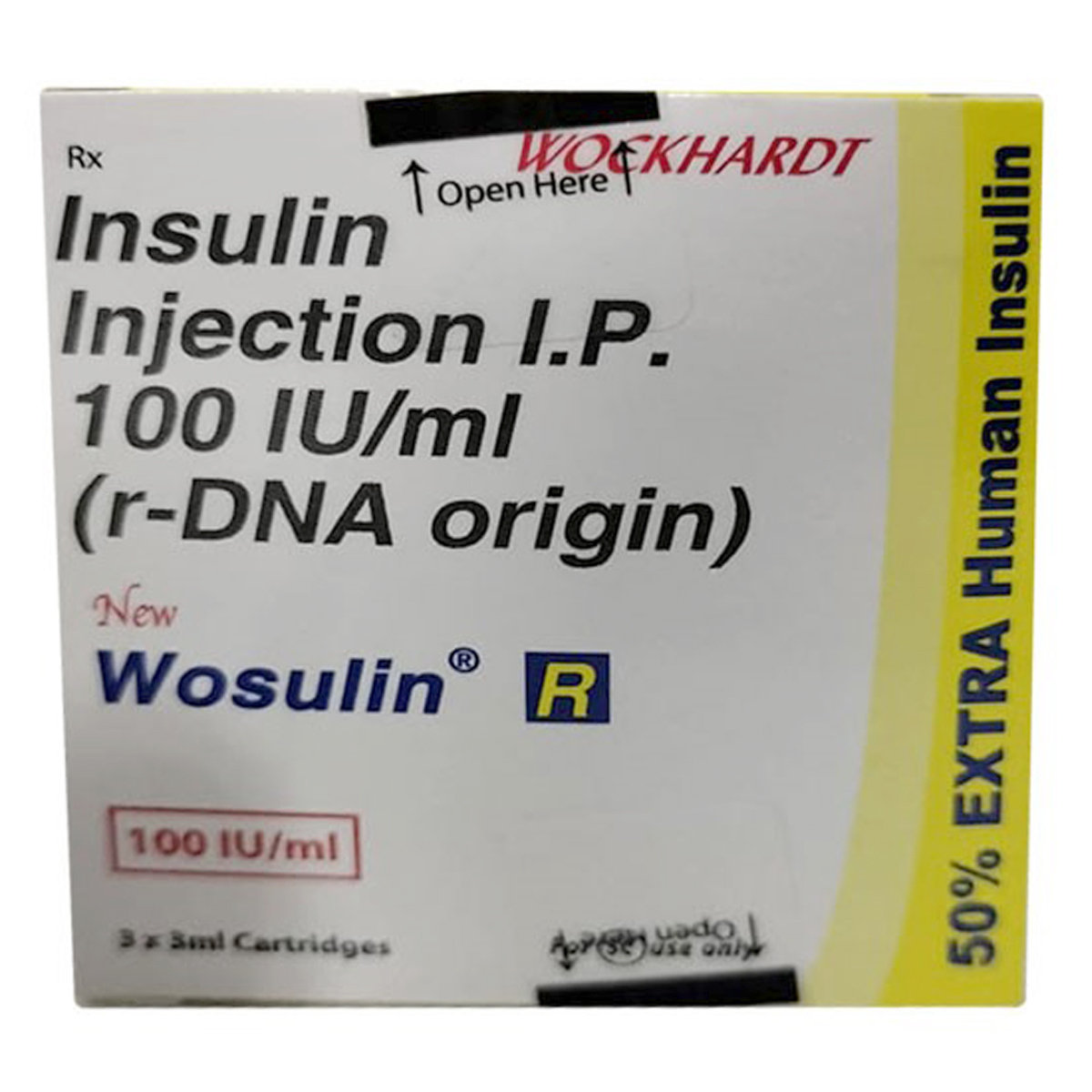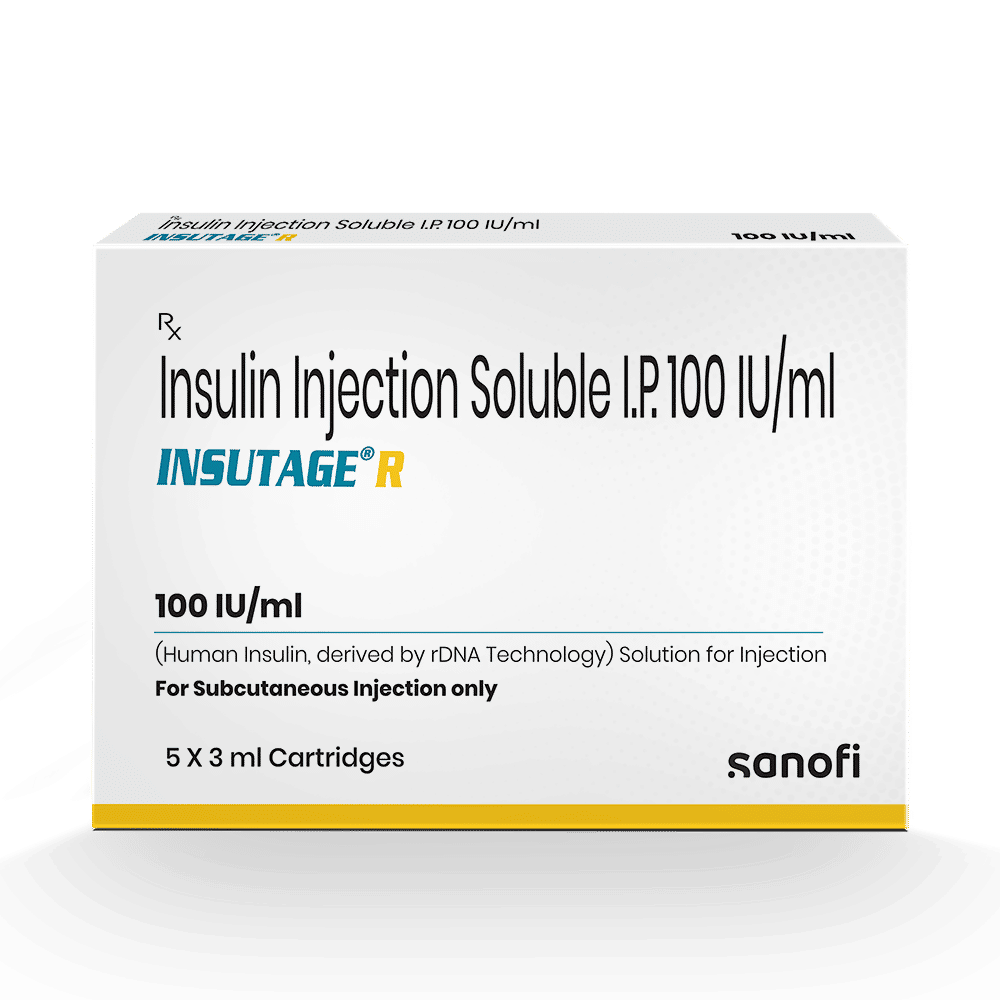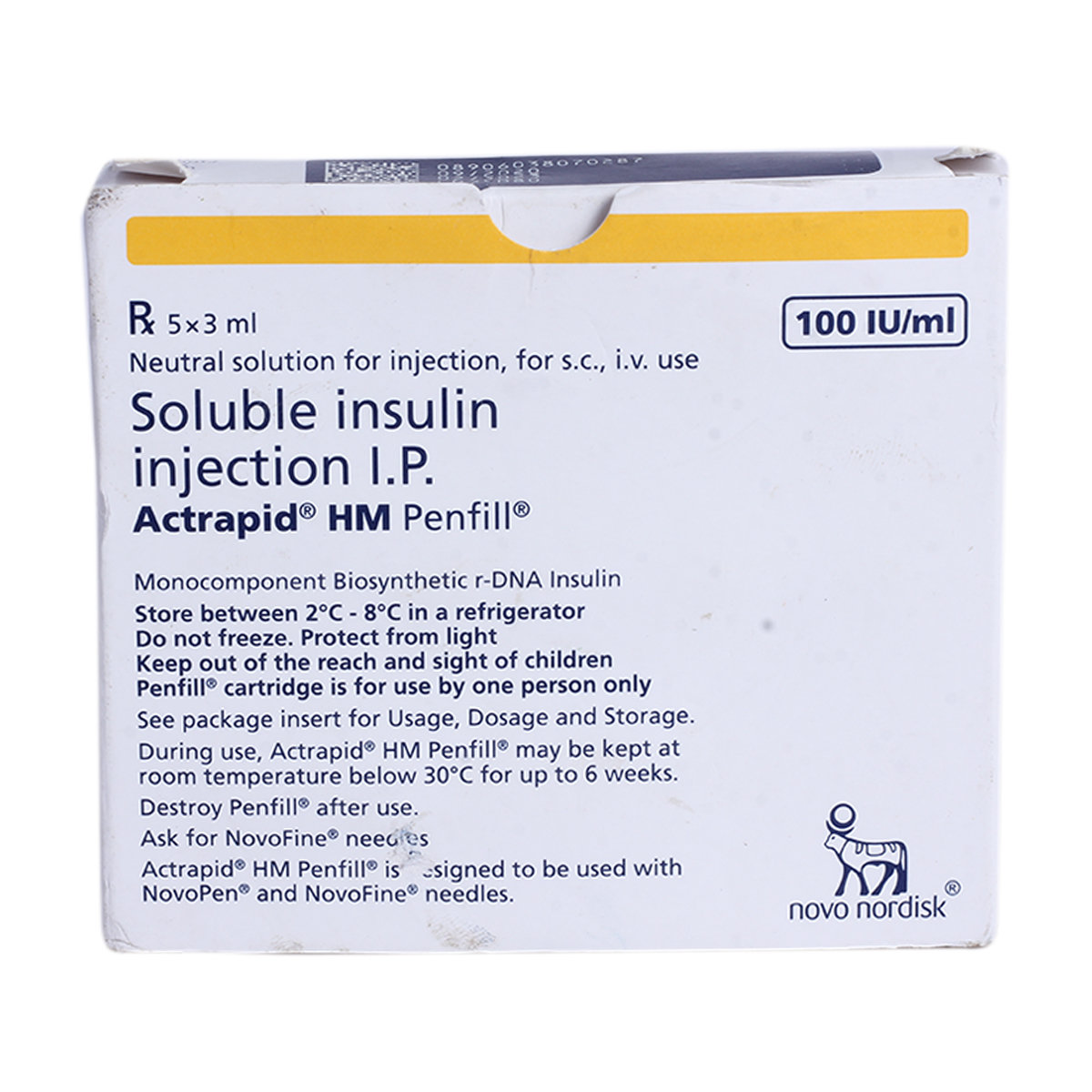- Home
- Lupisulin R 100 IU Injection
Lupisulin R 100 IU Injection Substitute
Lupisulin R 100 IU Injection Substitute
Medicine Composition:
INSULIN HUMAN-100IUAll Substitutes & Brand Comparisons
RX
Lupisulin M 50 (50/50) 100IU Injection 10 ml
Lupin Ltd
₹196
(₹17.64/ 1ml)
12% COSTLIERRX
Out of StockINSUMANRAPID 100I.U CARTRIDGES 5ML
Sanofi India Ltd
₹367
(₹73.4/ 1ml)
366% COSTLIERRX
Wosulin R 100IU/ml Injection 3ml
Wockhardt Ltd
₹258
(₹77.4/ 1ml)
391% COSTLIERRX
Insutage R 100Iu/Ml Cartridge 3 ml
Sanofi India Ltd
₹367
(₹122.33/ 1ml)
677% COSTLIERRX
Actrapid Hm 100Iu/ml Penfill 3 ml
Novo Nordisk India Pvt Ltd
₹424.5
(₹141.5/ 1ml)
798% COSTLIERRX
Out of StockWosulin R Dispopen-2 100 IU/ml Injection 1's
Wockhardt Ltd
₹194
(₹174.6 per unit)
1009% COSTLIERRX
Out of StockWosulin-R Dispo Pen 1's
Wockhardt Ltd
₹350
(₹315.0 per unit)
1901% COSTLIERRX
LUPISULIN R CATRDIGE INJECTION
Lupin Ltd
₹405
(₹364.5 per unit)
2215% COSTLIER

When Should You Consider Switching from Lupisulin R 100 IU Injection?
Patients may explore substitutes in the following scenarios:
- High monthly cost of Lupisulin R 100 IU Injection
- Non-availability in local pharmacies
- Generic recommendation by a doctor
- Side effects or better tolerability with alternatives
What to Know Before Switching
Before you switch from Lupisulin R 100 IU Injection to another medicine, here are some important points to keep in mind:
Same salt, different brands:
Most substitutes contain the same active ingredient - INSULIN HUMAN-100IU, but the fillers, coating, or manufacturing quality may vary slightly.
Consult your doctor first:
Even if the salt is the same, your doctor can confirm if the substitute is right for your condition, dosage, and health history.
Watch out for allergies or reactions:
Some people may react differently to certain brands due to inactive ingredients. If you notice any side effects, inform your doctor immediately.
Price ≠ effectiveness:
A lower-priced substitute doesn't mean it's less effective. Many generic medicines work just as well as branded ones.
Check the dosage form and strength:
Always match the substitute’s strength (e.g., 5mg, 10mg) and form (tablet, capsule, syrup) with what your doctor prescribed.
Uses
Lupisulin R 100 IU Injection is used in the treatment of Diabetes (Type 1 diabetes mellitus, Type 2 diabetes mellitus). The detailed uses of Lupisulin R 100 IU Injection are as follows:
- Diabetes Management: Lupisulin R 100 IU Injection is primarily used to regulate blood glucose levels in individuals with diabetes mellitus, helping to keep them within a healthy range.
- Postprandial Blood Sugar Control: Lupisulin R 100 IU Injection effectively manages postprandial (after-meal) blood sugar spikes through its combination of intermediate and short-acting insulin.
- Type 1 and Type 2 Diabetes Treatment: Lupisulin R 100 IU Injection is prescribed for patients with Type 1 and Type 2 diabetes who are unable to achieve adequate glycemic control with oral hypoglycemic agents alone.
Medicinal Benefits
- Lupisulin R 100 IU Injection is a hormone known as 'insulin' made in your pancreas, which helps your body utilize glucose (sugar) for energy.
- Insulin human is the name which describes synthetic insulin, which is laboratory-grown to mimic the insulin in humans.
- Lupisulin R 100 IU Injection works by ensuring rapid and consistent sugar control.
- Lupisulin R 100 IU Injection is a fast-acting form of insulin that helps lower blood sugar levels after food intake.
- This medicine helps prevent the risk of having severe complications of diabetes.
- It stimulates the recovery of sugar in muscle and fat cells and thus suppresses sugar production in the liver.
- Lupisulin R 100 IU Injection helps in improving glycaemic control, which in turn decreases the risk of progression of complications of diabetes like damage to the retina (retinopathy), damage to the kidney (nephropathy), damage to nerve cells (neuropathy), delayed wound healing, diabetic foot ulcer and others.
- Besides this, Lupisulin R 100 IU Injection can be safely prescribed to the diabetic mother during the pregnancy and the lactation stage.
FAQs
The substitutes of Lupisulin R 100 IU Injection contain the same active salt(s) - INSULIN HUMAN-100IU. However, they may differ in price, manufacturing quality, and inactive ingredients. Speak to your doctor to find a suitable option.
Switching to a generic substitute medicine in the place of Lupisulin R 100 IU Injection is often possible if it has the same salt, strength, and dosage form. But always check with your doctor before making any changes to your medication.
Generics versions of Lupisulin R 100 IU Injection are typically more affordable because they don’t include the original brand's research, development, and marketing costs. They contain the same active ingredient and are approved for safety and effectiveness.
Most people don’t notice any difference. However, some may react to different fillers or coatings. If you notice any unusual symptoms after switching, consult your doctor.
Make sure the new medicine has the same active salt, strength, dosage form. Always confirm the change with your doctor or pharmacist.
Substitutes of Lupisulin R 100 IU Injection meet the same safety and efficacy standards as Lupisulin R 100 IU Injection, but small differences in absorption or formulation can exist. A doctor can help you choose the right one for your needs.
Yes. Substitutes of Lupisulin R 100 IU Injection may vary in color, size, or shape due to differences in manufacturing and branding, but this does not affect how they work.
Yes, it’s generally safe to switch between multiple substitutes of Lupisulin R 100 IU Injection if they have the same salt and strength. However, always inform your doctor so they can monitor how your body responds.
Yes, many people safely use substitutes of Lupisulin R 100 IU Injection for long-term treatment. Just ensure it’s done under medical supervision.
If your symptoms stay under control or lab results remain stable, the substitute for Lupisulin R 100 IU Injection is likely working well. Regular follow-ups with your doctor are important.
Absolutely. Even with the same salt, small differences can affect how your body responds when switching from Lupisulin R 100 IU Injection to its substitute. Always consult your doctor before switching.
Lupisulin R 100 IU Injection is used to treat Type 1 diabetes mellitus and type 2 diabetes mellitus.
Lupisulin R 100 IU Injection can be given to treat both the condition of type 1 and type 2 diabetes mellitus. However, your doctor will decide whether Lupisulin R 100 IU Injection can be given to you or not, depending on your present condition. Lupisulin R 100 IU Injection should be avoided in patients who are allergic to Lupisulin R 100 IU Injection or other forms of insulin, patients with kidney disease, liver disease, low blood sugar/glucose level (hypoglycaemia), and low potassium level (hypokalaemia).
Cold sweat; cool pale skin; headache; rapid heartbeat; feeling sick; feeling very hungry; temporary vision changes; drowsiness; unusual tiredness and weakness; nervousness or tremor; feeling anxious; feeling confused; difficulty in concentrating are some of the common signs of the low blood sugar level in an individual.
If you experience low blood sugar, eat glucose tablets or another high sugar snack (e.g. sweets, biscuits, fruit juice). Measure your blood sugar if possible and rest. Always carry glucose tablets or high sugar snacks with you. You should give a call to any of your family members if you are feeling dizziness or drowsiness.
Local allergic reactions (pain, redness, hives, inflammation, bruising, swelling and itching) at the injection site may occur. These usually disappear after a few weeks of taking your insulin. If they do not disappear, or if they spread throughout your body, talk to your doctor immediately.
Human insulin is a laboratory created by growing insulin proteins within E-coli bacteria (Escherichia coli).
You are recommended to avoid white bread, maida, poori, naan, noodles, biryani, fried rice, corn flakes, cheese, ice creams, milkshakes, beef, pork, sugarcane juice, soft drinks, sweetened health drinks and beverages. Also, avoid mango, custard apple, jack fruit, fruit salads with ice cream, and fruit-based desserts.
No, do not stop taking Lupisulin R 100 IU Injection without consulting your doctor as it may lead to high blood sugar levels and may worsen your condition resulting in complications. If you experience any side effects or discomfort, contact your doctor. You may need dose adjustment.
Taking Lupisulin R 100 IU Injection at the same site may cause local irritation, itching and lump formation. Therefore, it is best to avoid taking injections at the same site or maintain a gap of at least one day.
Maintain a diet that includes chapatis, puffed rice with vegetables, multigrain bread, plain cooked dal, roasted grams soups, sprouts, cooked vegetables with less oil, steamed vegetables, orange, jamun, guava, watermelon, apple, papaya, curd, cow’s milk, thin buttermilk, fish (baked, grilled, or steamed), cashew nuts, peanuts, and walnuts (handful). Avoid alcohol consumption and quit smoking. Exercise regularly and brisk walk daily for 30 minutes. Also, limit intake of sugar.
The risk factors for developing low blood sugar levels include not taking adequate meals or skipping meals, excessive insulin use, too much alcohol intake, fever and too much exercise. Some medications, like other diabetes medicine glimepiride, medicines used for fever and pain (salicylates), ramipril, etc., can result in such episodes when used with insulin. Inform your doctor about these episodes as you may need dose adjustment.
The usual sites to inject Lupisulin R 100 IU Injection are thighs, abdomen and arms as these areas have fewer nerve endings and more fat. As a result, you may feel less discomfort in these areas. However, it is recommended to rotate your injection sites with each dose to reduce the risk of developing pitted or thick skin and lumps at the injection site.
The side effects of Lupisulin R 100 IU Injection include local injection site reactions, low blood sugar, low potassium, itchy skin, rash, weight gain, and swelling due to fluid retention. If these side effects persist or worsen, please consult your doctor.
Buy best Diabetics products by
Torrent Pharmaceuticals Ltd
Intas Pharmaceuticals Ltd
Eris Life Sciences Ltd
Lupin Ltd
Micro Labs Ltd
Sun Pharmaceutical Industries Ltd
Mankind Pharma Pvt Ltd
Alkem Laboratories Ltd
Lloyd Healthcare Pvt Ltd
Cipla Ltd
Macleods Pharmaceuticals Ltd
Abbott India Ltd
Primus Remedies Pvt Ltd
Glenmark Pharmaceuticals Ltd
Aristo Pharmaceuticals Pvt Ltd
Dr Reddy's Laboratories Ltd
USV Pvt Ltd
La Renon Healthcare Pvt Ltd
Wockhardt Ltd
Emcure Pharmaceuticals Ltd
Fusion Health Care Pvt Ltd
Ajanta Pharma Ltd
Ipca Laboratories Ltd
Alembic Pharmaceuticals Ltd
Corona Remedies Pvt Ltd
East West Pharma India Pvt Ltd
Hbc Life Sciences Pvt Ltd
Eswar Therapeutics Pvt Ltd
Zydus Healthcare Ltd
Alteus Biogenics Pvt Ltd
Elbrit Life Sciences Pvt Ltd
Mitoch Pharma Pvt Ltd
Medley Pharmaceuticals Ltd
Ranmarc Labs
Sinsan Pharmaceuticals Pvt Ltd
Msn Laboratories Pvt Ltd
Nirvana India Pvt Ltd
Tas Med India Pvt Ltd
Akumentis Healthcare Ltd
Arkas Pharma Pvt Ltd
Unison Pharmaceuticals Pvt Ltd
Leeford Healthcare Ltd
Acmedix Pharma Llp
Sanofi India Ltd
Q Check Pharmaceuticals
Novo Nordisk India Pvt Ltd
Blue Cross Laboratories Pvt Ltd
Xemex Life Sciences
Neucure Lifesciences Pvt Ltd
Alvio Pharmaceuticals Pvt Ltd
Anthem Bio Pharma
Spectra Therapeutics Pvt Ltd
Sydmen Life Sciences Pvt Ltd
Aareen Healthcare Pvt Ltd
Diacardus Pharmacy Pvt Ltd
Jubilant Lifesciences Ltd
Talent India Pvt Ltd
Edoc Life Sciences Pvt Ltd
Stature Life Sciences Pvt Ltd
Systopic Laboratories Pvt Ltd
Panacea Biotec Ltd
Sanz Pharmaceuticals
Shrrishti Health Care Products Pvt Ltd
Verse Lifesciences
Akesiss Pharma Pvt Ltd
Franco Indian Pharmaceuticals Pvt Ltd
Hicxica Formulations Pvt Ltd
Indoco Remedies Ltd
Lividus Pharmaceuticals Pvt Ltd
Capital Pharma
Elinor Pharmaceuticals (P) Ltd
Saan Labs
Zydus Cadila
Biocon Ltd
Eli Lilly and Company (India) Pvt Ltd
Lippon Pharma Pvt Ltd
MERAKI HEALTH
Remedy Life Sciences Pvt Ltd
Koye Pharmaceuticals Pvt Ltd
Morepen Laboratories Ltd
Eysys Pharmaceutical Pvt Ltd
MEDICAMEN BIOTECH LTD
Atos Lifesciences Pvt Ltd
Azkka Pharmaceuticals Pvt Ltd
Converge Biotech Pvt Ltd
Erinyle Health Care Pvt Ltd
Elder Pharmaceuticals Ltd
FDC Ltd
Heal (India) Laboratories Pvt Ltd
Knoll Healthcare Pvt Ltd
Jarun Pharmaceuticals Pvt Ltd
Opsis Care Lifesciences Pvt Ltd
Vasu Organics Pvt Ltd
Wallace Pharmaceuticals Pvt Ltd
CADOMAX HEALTHCARE PVT. LTD
Cadomed Pharmaceuticals India Pvt Ltd
Daylon healthcare pvt Ltd
Lincoln Pharmaceuticals Ltd
Medicure Life Sciences Pvt Ltd
Olcare Laboratories Pvt Ltd






